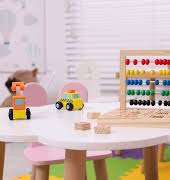Ask the Doctor: ‘How can I stop my child from getting the back-to-school flu?’
All your burning health questions answered by the professionals.
“My child is starting in preschool and everyone keeps telling me that he will spend the first few months picking up different bugs and viruses, and to prepare myself for him being sick all the time. This has really been playing on my mind and I am wondering if I am doing the right thing going back to work. Is there anything I should be doing to help keep him healthy or is this just to be expected?”

Answer from Lenora Leonard, Head of Infection Prevention Control, Beacon Hospital
Starting preschool is both an exciting and daunting time for children. It is exciting because they meet lots of new people and experience new environments, social circumstances and activities, including team-play. Going to school also involves a significant change in routine after summer holidays and may even be the first time your child has left your care. This is why it can be both stressful and emotional for both child and parent.
One risk is the increased exposure to germs, especially respiratory infections such as respiratory syncytial virus (RSV), flu and COVID-19; gastroenteritis viruses such as Norovirus and Rotavirus (which causes diarrhoea and vomiting) and slapped cheek syndrome (caused by a virus triggering a rash, runny nose and high temperature).
There are several steps you can take to protect your child from becoming sick:
- Teach your child how to wash their hands after play, after using the toilet and before eating. Washing their hands with soap and water removes germs and reduces the risk of becoming sick. It also sets up a good habit for life.
- Teach your child to cover their mouth and nose with a tissue when coughing or sneezing and discourage them from rubbing their eyes to reduce the risk of infection.
- Ensure your child is as fit and healthy as possible before going to preschool to boost their immune system sufficiently to fight off infections.
- Try to get your child into a consistent bedtime routine in the weeks before preschool to help them sleep well and better adjust to changes.
- Label toys, lunch boxes and water bottles with the child’s name to avoid them being shared unnecessarily.
- Dress your child appropriately such as layered clothing to allow adjustments to indoor and outdoor (playground or garden) temperatures.
- Stay up to date with your child’s vaccinations including measles, mumps and rubella (MMR), rotavirus oral vaccine, pertussis (whooping cough) and Hib/MenC (haemophilus influenzae type B and Meningococcal C) combined vaccine. Flu and COVID-19 vaccines are also available to protect your child during the flu season (October to April). These vaccines are safe, effective and protect your child from common illnesses.
- If your child is ill with a runny nose, temperature, cough, vomiting or diarrhoea, keep them at home and inform the preschool. This helps the school reduce the spread of germs through increased vigilance, by cleaning surfaces and toys and alerting other parents to the risks. Often, incidences of these infections are increased in the community and such vigilance is important everywhere to identify early signs and symptoms of illness to prevent spread of infection.
- Having a thermometer at home helps with decision-making as to whether the child is well enough to go to preschool. Children will always be exposed to common viral infections. It is inevitable some children will come home with infections from preschool, but good infection control techniques are important for both child and parent to limit the spread and impact of these unwelcome germs.
Have a question for the professionals you’d like answered? Get in touch with sarah.gill@image.ie with the subject headline ‘Ask The Doctor’.



















